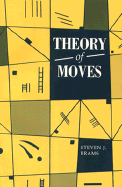Book contents
- Frontmatter
- Contents
- List of figures
- Acknowledgments
- Introduction
- 1 Rules of play: the starting point matters
- 2 The anticipation problem: there may be no resolution
- 3 Magnanimity: it sometimes pays
- 4 Moving power: breaking the cycle
- 5 Order and threat power: eliminating indeterminacy and communicating intentions
- 6 Information in games: misperception, deception, and omniscience
- 7 Incomplete information in larger games: a model of negotiations
- 8 Summary and conclusions
- Appendix
- Glossary
- Bibliography
- Index
4 - Moving power: breaking the cycle
Published online by Cambridge University Press: 01 June 2011
- Frontmatter
- Contents
- List of figures
- Acknowledgments
- Introduction
- 1 Rules of play: the starting point matters
- 2 The anticipation problem: there may be no resolution
- 3 Magnanimity: it sometimes pays
- 4 Moving power: breaking the cycle
- 5 Order and threat power: eliminating indeterminacy and communicating intentions
- 6 Information in games: misperception, deception, and omniscience
- 7 Incomplete information in larger games: a model of negotiations
- 8 Summary and conclusions
- Appendix
- Glossary
- Bibliography
- Index
Summary
Introduction
The nature of postwar settlements – and, in particular, whether the victor should be magnanimous or not – depends not only on the specific game being played but also on the rules of play and the rationality rules, which I discussed in chapter 1. In this chapter I will modify the latter rules by introducing an asymmetry in the capabilities of the players, which enables one player to continue moving when the other player must eventually stop.
This kind of power, which I call “moving power,” was Egypt's strength in its protracted struggle with Israel from 1948 until 1978–9. In each of the five wars that Egypt and Israel fought before the 1978 Camp David accords and their 1979 peace treaty (1948, 1956, 1967, 1969–70, and 1973), Israel prevailed but was unable to stabilize a postwar Status Quo, despite the plethora of military and diplomatic agreements, U.N. resolutions, and mediation efforts that followed each war (Touval, 1982). Instead, recurring cycles of violence and short-term accommodations characterized the prolonged conflict between these two antagonists. If this conflict were a class 2 game in figure 3.5, in which Magnanimity is the unique NME, it should not have taken 31 years to achieve peace.
This is a puzzle that I shall attempt to explain informally in this section and then more formally in section 4.3. However, I shall not try to encapsulate the 31-year conflict between Egypt and Israel in a single 2×2 strict ordinal game.
Information
- Type
- Chapter
- Information
- Theory of Moves , pp. 85 - 120Publisher: Cambridge University PressPrint publication year: 1993
